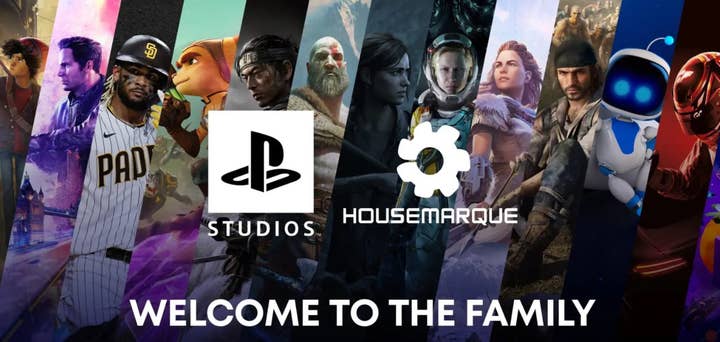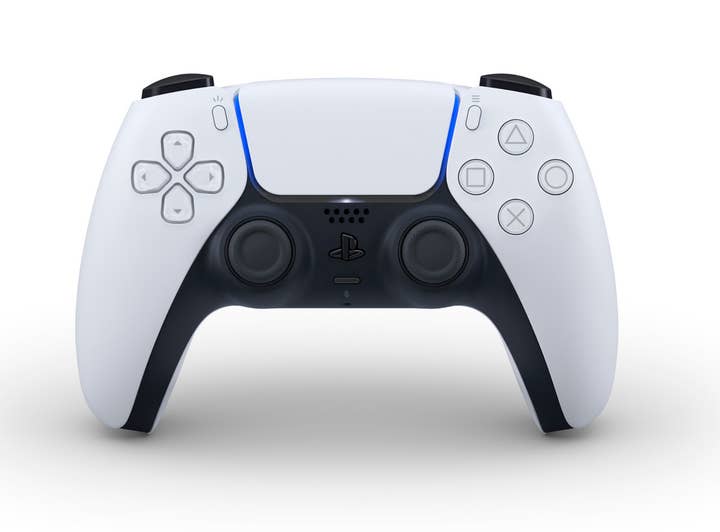PlayStation's spending spree is radically different to Xbox's | Opinion
The company's recent spate of acquisitions is in-keeping with what it's always done
PlayStation's recent acquisitions may look like a reaction to Xbox, and in some ways it is.
Sony has a number of close independent partners across the industry, and with leading games companies running around buying up all they can see (and not just Microsoft, but Tencent, Embracer, Zynga, EA...), it's important for Sony to protect its interests and ensure that its key partners stay around.
But Sony's acquisition strategy is more considered than a lot of the mergers and acquisitions (M&As) happening in games today, and certainly in marked contrast to what Xbox is doing.
Microsoft's acquisition strategy is almost frenzied in its approach to buying the best talent available. Bethesda was the big headline purchase, and one that sent shockwaves through the industry. It has added significant strength to Xbox's first-party output and is a major boost for the Game Pass subscription service.
It has never been the company's style to go out and drop billions on a Bethesda
Yet it was also an acquisition that didn't really fit with what Phil Spencer and Matt Booty had been talking about in interviews. They were looking for studios that could add new types of games and appeal to different audiences. We had talked about family games, Japanese games, games for Asian markets... what they didn't need were more RPGs and shooters, but that's exactly what they bought.
That's not to dismiss the value Bethesda brings to Microsoft. If you like shooters and RPGs, then Xbox is really the home for that stuff now, more than ever before. It's a deal that adds significant depth to Game Pass, but not breadth. There are more acquisitions to come that will inevitably deliver that, of course, but the Bethesda deal highlights how Xbox is interested in all opportunities.
By contrast, Sony's recent acquisitions are more targeted and far less dramatic. Housemarque is a long-term partner that took a real step up quality-wise with Returnal. Sony has played an active role in developing that studio, and it is the inevitable culmination of that relationship.
Nixxes is another strategic acquisition. PlayStation has seen big success on PC by porting some of its legacy titles. It's seen its brands reach new heights already on PS4, and PC is making those IP even more significant. Buying a specialist in PC games allows Sony to deepen its exploration of that market without impacting its existing first-party teams.
Then there's Bluepoint. The studio wasn't bought by Sony last week, despite a tweet from PlayStation Japan that seemed to announce it. However, if it did (or does) happen, it would represent another considered move from the company.
Bluepoint is also a long-term partner, but specifically it is the master of remasters. PlayStation has long leaned on legacy games to fill gaps in the release slate to strong effect. Demon's Souls was the best received game at the launch of PS5, whereas the PS4 remaster of The Last of Us remains one of the console's most successful early titles. So it makes sense to bring in a team famed for such work.

Housemarque is typical of how PlayStation acquires companies. They go on a few dates, which can evolve into a relationship and then, if all goes well, they get married. It's a pretty common strategy, and in fact some of the studios Xbox has acquired followed a similar journey, such as Undead Labs and Playground Games.
Already this year PlayStation has announced it's dating three new companies in Haven Studios, Firewalk Studios and Deviation Games. These are completely new AAA developers that nobody had heard of before they'd partnered with Sony, but the talent behind them have created games like Assassin's Creed, Destiny and Call of Duty.
Sony has invested in Haven (Jade Raymond's new studio) and is publishing the first games from the other two. All three will have access to PlayStation's internal resources and will be supported by PlayStation Studios boss Hermen Hulst. Like any date, things won't necessarily work out or run smoothly. But if they do, then we should anticipate these things to blossom in the way things did between Sony and Naughty Dog, and Guerrilla, and Media Molecule, and Sucker Punch, and (eventually) Insomniac.
That's not to say PlayStation won't invest in companies that can plug gaps in their skills and knowledge base. It's made acquisitions like that frequently. Nixxes has added PC development expertise to the business, Gaikai taught PlayStation about game streaming, whereas the recent acquisition of EVO gives the firm a foothold in esports.
Ultimately, this is how Sony has historically bought games companies. It's either the inevitable result of a successful partnership, or a strategic move that allows it to explore another area of the business. It has never been the company's style to go out and drop billions on a Bethesda or to rush out and buy anyone who may be for sale.
In a year where M&As are dominating the GamesIndustry.biz newsletter, we should expect Sony to keep spending money. Just don't expect it to get drawn into the sort-of frenetic activity that we are seeing from some of the other video game giants.

